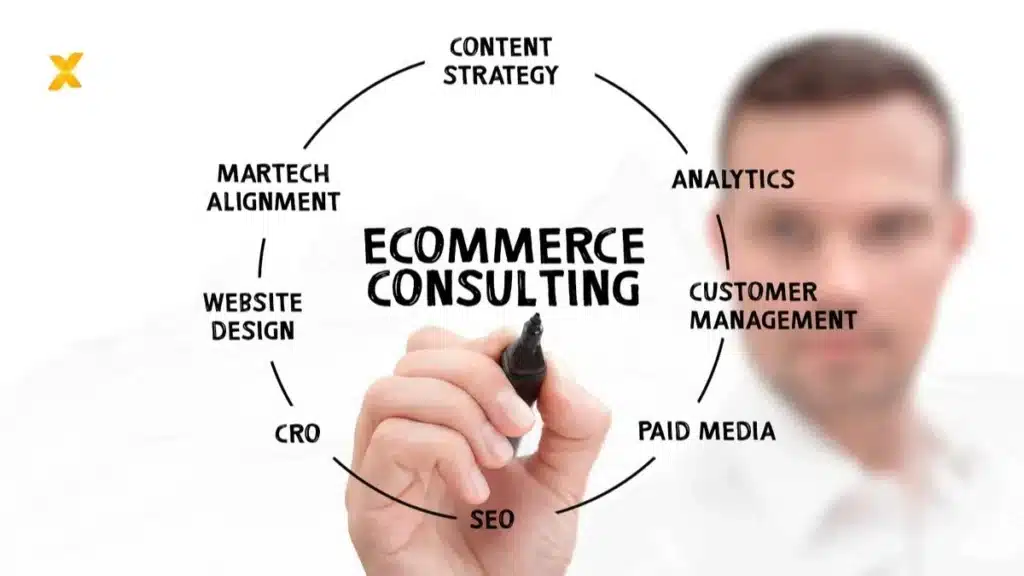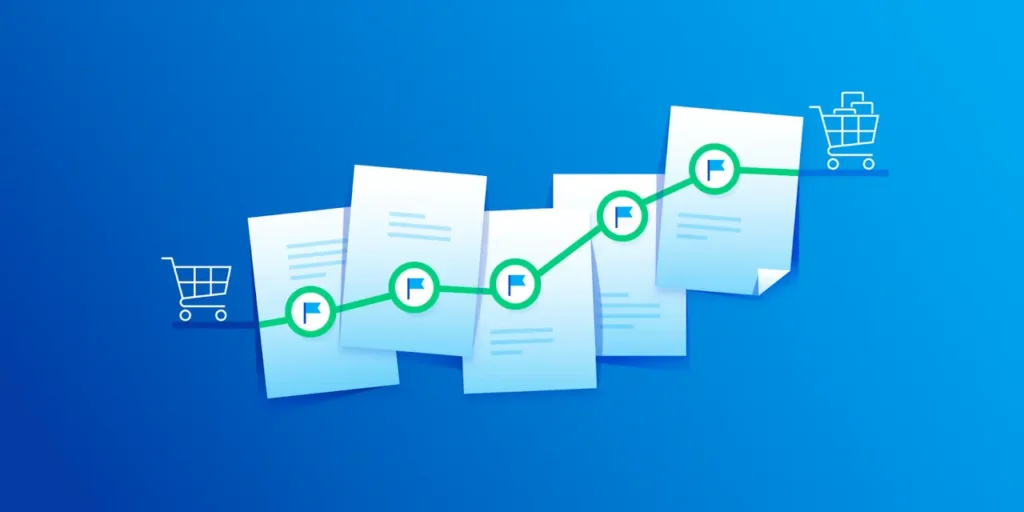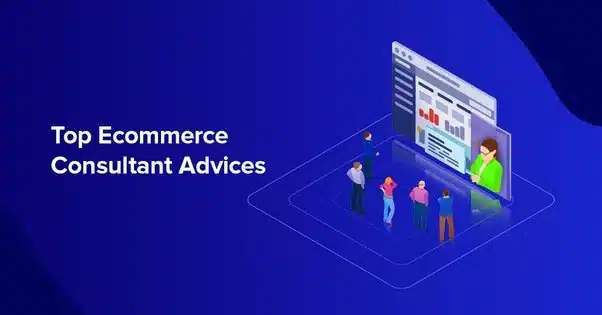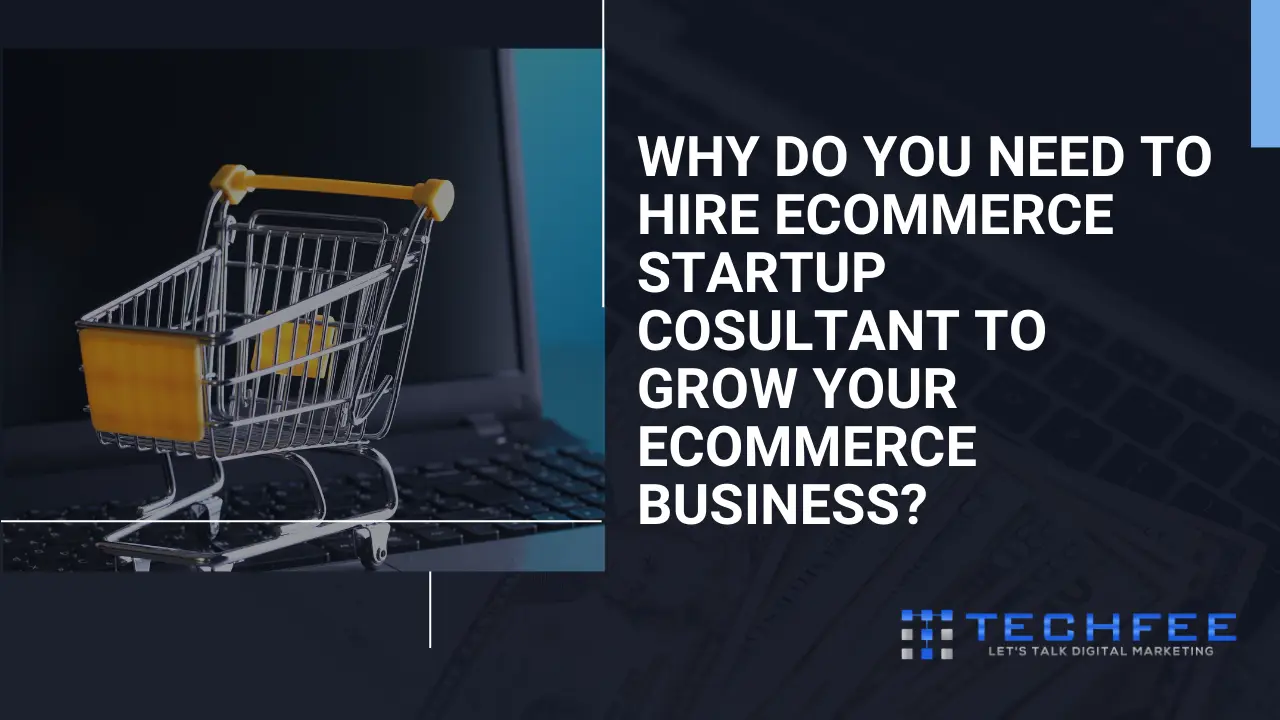E-commerce startup Consultants are very helpful for new businesses that want to succeed in the fast-paced world of online shopping.
As new technologies and trends change the e-commerce world, these consultants have the knowledge to help businesses address problems and capitalize on opportunities.
We all also know the world of online shopping is changing very quickly and will be more competitive than ever in 2024 and beyond.
As the world moves faster toward online shopping, businesses must stay ahead of a constantly changing market.
Key trends are changing how online stores work. These include new technologies like personalized AI and the rise of environmentally friendly ways to shop online.
According to Forbes, E-commerce sales are expected to grow 8.8% in 2024; The entire e-commerce business is booming, not just retail sales. With nearly 9% growth projected for this year, there are plenty of opportunities to dive in. Help your business stand out from the competition by staying at the forefront of online payment technologies and creating a website that’s easy to navigate and browse.
Amidst this rapidly evolving e-commerce landscape, the role of an e-commerce consultant becomes crucial.
These professionals are not just a luxury, but a necessity for businesses navigating this dynamic market.
They can provide the guidance and expertise needed to steer your business through these changes, ensuring you stay competitive and relevant.
In this guide, you will learn why you need to hire an ecommerce startup consultant, what they can do for you, and how to pick the best one for your new business.
Read on to find out how these professionals can change your online store and keep you on the cutting edge of this exciting field.
What is an E-commerce Consultant, and What Does an E-commerce Consultant Do?

An e-commerce consultant is a professional who provides expert advice and strategic direction to help online businesses improve their operations, boost sales, and achieve long-term growth.
Their jobs include many different tasks, such as analyzing market trends and customer behavior, devising effective marketing plans, and ensuring that everything runs smoothly.
E-commerce experts know a lot about many areas of online shopping, such as Best SEO strategies, product management, and designing the best user experience.
A common misunderstanding is that e-commerce consultants only deal with technical problems or are only interested in making more sales.
In fact, they know a lot about business strategy, managing relationships with customers, and even financial planning.
This makes them very helpful for new businesses trying to figure out how to do business online.
Why Do You Need to Hire an Ecommerce Startup Consultant?
Hiring an ecommerce startup consultant can make or break your online business, giving you a lot of benefits in many important areas.
These are the 8 ways an e-commerce consultant can help grow your business:
1) Strategic Planning and Market Analysis
Identifying Market Opportunities: An ecommerce consultant conducts thorough market research to identify emerging trends and untapped market opportunities, ensuring your business is positioned for growth.
Competitive Analysis: By analyzing competitors, consultants can pinpoint strengths and weaknesses, helping you develop strategies to outperform them and capture more market share.
2) Building a Strong Brand Identity
Branding Strategies for Startups: Consultants assist in crafting a compelling brand story and visual identity that resonates with your target audience, setting you apart in a crowded marketplace.
Importance of Unique Selling Proposition (USP): They help define and communicate your USP, ensuring customers understand what makes your brand unique and why they should choose you over competitors.
3) Optimizing Product Offerings
Product Development and Selection: Ecommerce consultants guide you in selecting and developing products that meet market demand, enhancing your product lineup’s appeal and profitability.
Pricing Strategies: They devise pricing strategies that balance competitiveness with profitability, ensuring your products are attractively priced while maximizing revenue.
4) Enhancing Customer Experience
User Experience (UX) Design: Consultants focus on creating an intuitive and engaging user experience on your website, making it easy for customers to navigate, find products, and make purchases.
Customer Journey Mapping: By mapping out the customer journey, they identify touchpoints and opportunities to enhance the overall customer experience, leading to higher satisfaction and loyalty.
5) Marketing and Sales Strategies
Digital Marketing Techniques: From SEO to social media marketing, consultants implement effective digital marketing techniques that drive traffic and boost conversions.
Sales Funnel Optimization: They optimize your sales funnel, ensuring each stage is designed to convert leads into loyal customers efficiently.
6) Technology and Infrastructure
Choosing the Right Ecommerce Platform: Consultants help you select the most suitable ecommerce platform for your business needs, whether it’s Shopify, WooCommerce, Magento, or another option.
Integrating Tools and Software: They assist in integrating essential tools and software, such as CRM systems, payment gateways, and inventory management, to streamline operations.
7) Financial Planning and Management
Budgeting and Financial Projections: Ecommerce consultants provide guidance on budgeting and financial projections, ensuring you have a clear roadmap for financial stability and growth.
Funding and Investment Strategies: They offer advice on securing funding and investment, whether through venture capital, loans, or other financing options, to support your business expansion.
8) Navigating Legal and Regulatory Issues
Compliance and Legal Considerations: Consultants ensure your business complies with relevant laws and regulations, reducing the risk of legal issues.
Intellectual Property Protection: They help protect your intellectual property, safeguarding your brand, products, and proprietary information from infringement.
By leveraging the expertise of an ecommerce startup consultant, you can navigate the complexities of the ecommerce landscape with confidence, positioning your business for long-term success in 2024 and beyond.
How to choose the right e-commerce consultant for your online store

Choosing the right e-commerce consultant for your online store involves a strategic approach that ensures you find a professional who aligns with your business goals and culture.
Here’s how to go about it:
Identifying Your Needs
Assessing Internal Capabilities: Start by evaluating your existing team’s strengths and weaknesses.
Determine what skills and expertise are missing and need to be supplemented by an external consultant.
Defining Project Scope and Objectives: Clearly define what you hope to achieve with the consultant’s help. Outline specific goals such as increasing conversion rates, improving customer experience, or expanding market reach.
Finding Qualified Consultants
Where to Look for Consultants: Explore various platforms to find potential consultants.
Websites like LinkedIn, Upwork, and industry-specific forums are great places to start.
Networking at industry events and seeking recommendations from peers can also be fruitful.
Evaluating Consultant Expertise: Look for consultants with a proven track record in ecommerce.
Check their professional background, certifications, and the types of projects they have successfully completed in the past.
Conducting Interviews
Key Questions to Ask: During interviews, ask questions that reveal their strategic approach, problem-solving skills, and familiarity with your specific industry.
For example, “Can you describe a time when you helped an ecommerce business overcome a significant challenge?”
Assessing Cultural Fit: Ensure the consultant’s working style and values align with your company culture.
A good cultural fit can significantly enhance collaboration and project success.
Checking References and Case Studies
Importance of Past Work: Request references and review case studies of their previous projects.
This helps you gauge their expertise and the impact of their work.
Analyzing Success Stories: Look for case studies that highlight similar challenges to those your business faces.
Analyze how they approached the problem, the solutions they implemented, and the results achieved.
Negotiating Terms and Contracts
Setting Expectations and Deliverables: Clearly outline the scope of work, deliverables, timelines, and performance metrics in the contract.
This ensures both parties have a mutual understanding of the project’s goals.
Understanding Payment Structures: Discuss and agree on payment terms.
Consultants may charge hourly rates, fixed fees, or performance-based compensation.
Choose a structure that aligns with your budget and project requirements.
Onboarding and Collaboration
Establishing Communication Channels: Set up regular communication channels, whether through email, video calls, or project management tools.
Regular check-ins are crucial for monitoring progress and addressing any issues promptly.
Setting Up Collaborative Tools: Utilize collaborative tools like Slack, Trello, or Asana to streamline workflow and ensure everyone stays on the same page.
These tools facilitate smooth communication and project management.
By following these steps, you can effectively choose an ecommerce consultant who will help propel your online store to new heights in 2024.
How Much Does an eCommerce Consultant Charges?
The cost of hiring an e-commerce consultant depends on many factors, such as their experience, the size of the job, and the services needed.
Most of the time, e-commerce experts charge between $75 and $300 an hour.
They may charge a flat fee for bigger projects, which can range from $5,000 to $50,000 or more, depending on the difficulty and length of the job.
Some advisers may also offer performance-based pricing, meaning their fees depend on how well they help a business reach its goals.
It is essential to discuss and fully explain the payment structure immediately, ensuring it fits your budget and the work you expect.
Hiring a skilled e-commerce consultant can help your online business grow and run more efficiently, so it’s a good investment.
How to Become/start an Ecommerce Startup Consultant?

Becoming an ecommerce startup consultant can be a rewarding career choice, offering opportunities to help businesses thrive in the competitive online marketplace.
Here’s a comprehensive step to get you started:
How Much Does It Cost To Become An Ecommerce Consultant?
The initial costs to become an ecommerce consultant can vary, but generally include expenses for education, certifications, marketing, and business setup.
You may spend around $2,000 to $10,000 on online courses, certifications, and other training programs to build your expertise.
Additionally, setting up a professional website and marketing yourself can cost another $1,000 to $5,000.
Legal and business formation costs, such as registering your business and obtaining necessary licenses, can range from $500 to $2,000.
Raising Money For Your Ecommerce Consultant Business
Bootstrapping
Bootstrapping involves using your own savings to fund your business.
This approach requires careful financial planning and discipline but gives you complete control over your business without external interference.
VC Funding
Alternatively, you can seek venture capital (VC) funding. This involves pitching your business idea to investors who provide capital in exchange for equity.
While VC funding can provide significant financial resources, it often comes with expectations of rapid growth and returns on investment.
What Skills Do I Need To Succeed In Becoming An Ecommerce Consultant?
To succeed as an ecommerce consultant, you need a combination of technical and soft skills.
Key skills include digital marketing, SEO, data analysis, and knowledge of ecommerce platforms like Shopify and Magento.
Additionally, strong communication, problem-solving, and project management skills are crucial for effectively collaborating with clients and delivering results.
Advice For Becoming An Ecommerce Consultant
Start by gaining hands-on experience in the ecommerce industry, either through working for an ecommerce company or running your own online store.
Building a strong portfolio of successful projects and case studies will help you attract clients.
Networking with industry professionals and staying updated with the latest ecommerce trends is also essential.
Write a Business Plan
A solid business plan outlines your business goals, target market, competitive analysis, marketing strategy, and financial projections.
This document will guide your business development and can be crucial for securing funding.
Determine Which Business Bank Account You Need
Choose a business bank account that suits your needs.
Look for accounts with low fees, good customer service, and features like online banking, invoicing, and integration with your accounting software.
Setting Up Your Ecommerce Consultant Business (Formation and Legal
Register your business with the appropriate local authorities, choose a business structure (such as sole proprietorship, LLC, or corporation), and obtain any necessary licenses or permits.
It’s advisable to consult with a lawyer to ensure all legal aspects are covered.
How Do I Pay Myself As A Small Business Owner?
Decide on a method for paying yourself, such as a salary, owner’s draw, or dividends, depending on your business structure and financial situation.
Consult with an accountant to ensure you’re compliant with tax regulations.
How To Price Your Ecommerce Consultant Services
Determine your pricing strategy based on your experience, the scope of services you offer, and the market rates.
Research what other consultants charge and consider offering various pricing models, such as hourly rates, flat fees, or performance-based pricing.
Rate Calculator: How to Calculate The Price For Your Ecommerce Consultant Services
Use a rate calculator to determine your pricing. Calculate your desired annual income, business expenses, and billable hours to set an hourly rate that covers your costs and meets your financial goals.
For example, if you want to earn $100,000 a year and expect $20,000 in expenses, working 1,500 billable hours a year, your hourly rate should be around $80.
Identify Target Customer
Define your ideal customer based on factors like industry, business size, and specific ecommerce needs.
Tailor your marketing efforts to attract these customers by addressing their pain points and demonstrating how your services can solve their problems.
Building an MVP (Minimal Viable Product)
Before fully launching your consulting services, develop a minimal viable product (MVP).
This could be a limited version of your service offering that allows you to test your ideas, gather feedback, and make improvements before scaling up.
By following these steps, you can set a strong foundation for your ecommerce consultancy business, positioning yourself for success in this dynamic and growing field.
How to Get Ecommerce Consultant Jobs
Landing ecommerce consultant jobs involves understanding the role, expected salary, freelance opportunities, and typical hourly rates:
Ecommerce Consultant Job Description
An ecommerce consultant helps online businesses by giving them expert advice and strategic direction.
Their jobs include:
- Analyzing the market.
- Coming up with marketing plans.
- Making sure that products are offered at the best prices.
- Improving the customer experience.
Making sure that technology is integrated.
They work closely with clients to find ways to grow, make operations run more smoothly, and boost total performance.
For this job, you need to be able to think critically, have experience with e-commerce sites, and know a lot about digital marketing.
Ecommerce Consultant Salary
A adviser in e-commerce makes a range of salaries, which depend on their experience, where they work, and the size and complexity of the projects they work on.
Full-time ecommerce experts can make around $60,000 to $120,000 a year on average.
Expert experts who have a history of getting big business results may be able to charge higher rates, often more than $150,000 a year.
Freelance Ecommerce Consultant
A lot of ecommerce experts choose to work on their own, taking on projects from different clients.
When you work as a freelancer, you have the freedom to choose which businesses to work with.
As a freelance consultant, you need to build a strong portfolio, make connections in your field, and keep your online profile strong to get clients.
Ecommerce Consultant Hourly Rate
For freelance ecommerce experts, the hourly rate is usually between $75 and $200, but it depends on their experience and how much work they have.
Consultants who are just starting out might charge around $75 an hour, while consultants with a lot of experience and specific skills can charge $150 to $200 an hour or more.
To set a fair hourly rate, you need to find a balance between what the market pays and how much value you bring to clients.
People who want to become ecommerce consultants should know about these things so they can better find work, negotiate salaries, and do well in the freelance market.
Conclusion
At the end of the day, choosing an ecommerce startup consultant can make or break your online business.
These professionals can give you great strategy advice, help you run your business more efficiently, and keep you up to date on the latest trends in your field.
Their knowledge can help with a lot of things, from analyzing the market to making the customer experience better.
To pick the right consultant, you need to carefully think about the consultant’s qualifications, your business goals, and your budget.
If you want to hire an ecommerce expert or become one yourself, you need to know what their job is, how much they charge, and how to be successful.
Using an e-commerce consultant’s skills and knowledge, you can confidently navigate the complicated digital market and achieve long-term growth through 2024 and beyond.
I hope this guide has helped you understand the pros and cons of each eCommerce platform.
After reading this comprehensive blog post, you should find it easier to choose the best platform for your business.
If you found this post informative, please leave a comment below saying, “I found this post informative.”
Additionally, we encourage you to share this post with others to help educate more people.
Also, don’t forget to subscribe to our email newsletter to receive more informative content like this directly in your inbox.
FAQs: Ecommerce Startup Consultants
What is the typical cost of hiring an ecommerce startup consultant?
The typical cost of hiring an ecommerce startup consultant varies based on factors like experience and project scope, but it can range from $75 to $300 per hour or $5,000 to $50,000 for a project.
How long does the consultation process usually take?
The consultation process duration can vary depending on the complexity of the project, but it generally takes anywhere from a few weeks to several months.
Can consultants help with international market expansion?
Yes, consultants can assist with international market expansion by providing market research, localization strategies, and guidance on navigating regulatory requirements and cultural nuances.
What are the red flags to watch for when hiring a consultant?
Red flags when hiring a consultant include lack of transparency, unrealistic promises, poor communication, and a lack of relevant experience or expertise.
How do I measure the success of the consultation?
Success of the consultation can be measured by key performance indicators (KPIs) such as increased sales, improved conversion rates, enhanced customer satisfaction, and achieving business goals outlined at the start of the engagement.
Do startups hire consulting firms?
Yes, startups often hire consulting firms for specialized expertise, scalability, and access to a broader range of resources and networks.
Can I be a consultant without a degree?
Yes, it's possible to become a consultant without a degree by gaining relevant experience, certifications, and demonstrating expertise in your field through projects and results.
Can I make a living of e-commerce?
Yes, it's possible to make a living from e-commerce by building and scaling successful online businesses, providing consulting services, or working for e-commerce companies.
What is the highest salary in ecommerce?
The highest salary in ecommerce can vary widely depending on factors like role, experience, and location, but top executives or specialized professionals can earn salaries exceeding $200,000 per year.
What is the most lucrative e-commerce business?
The most lucrative e-commerce businesses often involve selling high-margin products or services in niche markets, such as luxury goods, subscription services, or digital products with low overhead costs and high demand.











